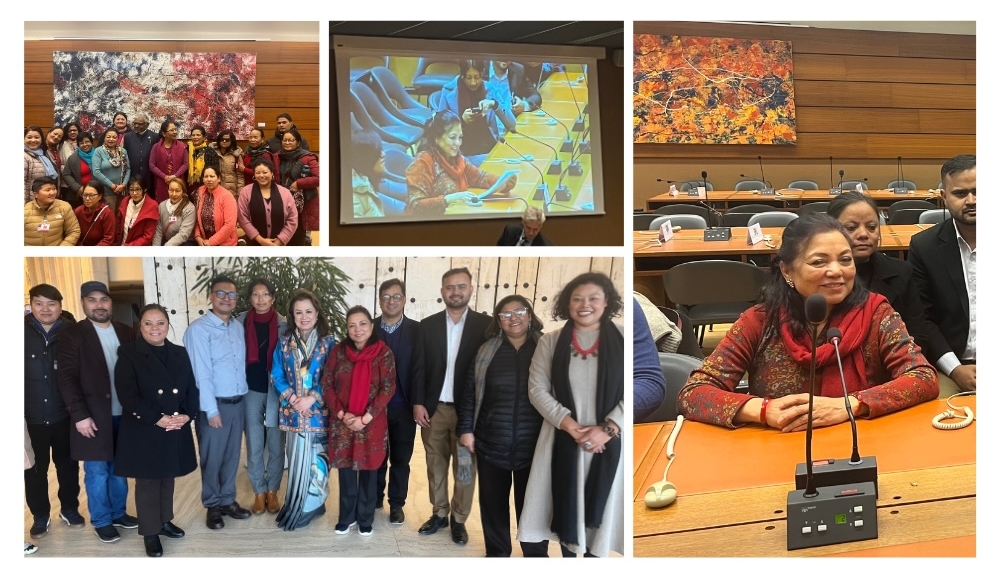On 3 February 2025, Durga Sob, founder of the Feminist Dalit Organisation (FEDO) and a leading advocate for Dalit women’s rights, delivered a statement in connection with the 90th Session of the UN Convention on the Elimination of Discrimination Against Women (CEDAW) Committee’s review of Nepal. Representing both FEDO and IDSN, Ms. Sob highlighted the entrenched discrimination and social exclusion faced by Dalit women and girls in Nepal.

Photos by IDSN
In her oral statement at the Informal Public NGO Briefing Session, Ms. Sob underscored that Dalit women and girls, constituting 15% of Nepal’s women population, continue to experience systemic discrimination. She emphasised three critical areas requiring immediate attention:
- Access to Justice: Dalit women and girls remain hesitant to report crimes due to fear of retaliation and mistrust in the justice system. The promised free legal support has not materialised.
- Political Representation: Although Nepal has introduced mandatory quotas for Dalit women’s representation, meaningful participation of Dalit women in leadership remains minimal. Those who are elected frequently face harassment and discrimination.
- Inter-Caste Marriage Discrimination: Dalit women in inter-caste marriages endure life-threatening violence and social exclusion. The absence of adequate protection mechanisms exacerbates their vulnerability.
Key Recommendations to the CEDAW Committee
Ms. Sob called upon the Committee to hold Nepal accountable for its obligations under CEDAW and urged the government to:
- Fully implement the Caste Based Discrimination and Untouchability Act (CBDU Act) to address intersectional and collective discrimination.
- Establish robust monitoring mechanisms for caste and gender-based discrimination, including the collection of disaggregated data.
- Develop targeted programmes to enhance Dalit women’s socio-economic empowerment and leadership.
- Reinstate and strengthen protection measures for inter-caste couples, including legal and psychological support.
- Ensure universal access to quality healthcare for all women, addressing the intersectional discrimination faced by Dalits and other marginalised groups.
Ms. Sob’s statement echoed the key findings of the two joint submissions by FEDO and IDSN as well as other Dalit rights NGOs, which detail the systemic barriers faced by Dalit women and provide concrete recommendations for reform.
The joint submissions, summary briefing and video recording of the NGO briefing, where Ms. Sob presented her statement, can be accessed via the following links:
- Joint Submission: FEDO and IDSN Shadow Report – CEDAW Nepal 2025
- Summary Briefing: Summary and Key Recommendations
- Joint Submission (2024): Joint Submission to the UN CEDAW 2024 – Caste and Gender Justice in Nepal (IDSN,DWO, NNDSWO, FEDO, Adwan, DANAR-Nepal, DHR-Nepal)
- NGO Briefing Video: UN Web TV – Informal Briefing
It is crucial that the government of Nepal implements the Committee’s recommendations to dismantle caste and gender-based discrimination. The voices of Dalit women, championed by activists like Durga Sob, must be central to these efforts to ensure that no Dalit woman or girl is left behind.
Watch the video of Durga Sob giving her statement:
